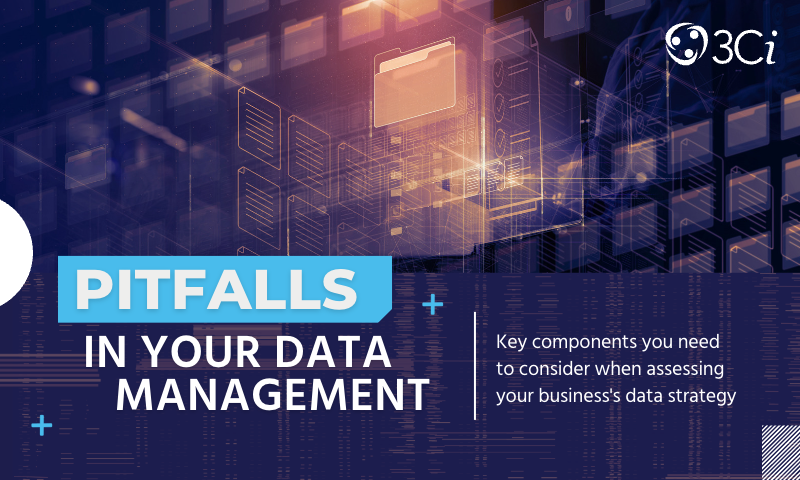Data management within a business is a vital aspect of success, and yet poor data processes can exponentially increase the risk of mistakes. In a fast-paced digital age characterized by expanding customer expectations, companies must possess reliable systems to stay competitive – but how do you ensure that? This blog post will explore some of the most common pitfalls in data management that businesses make, as well as offer advice on how to avoid them and create efficient data systems. As your organization expands or adopts new technology, take the time to assess potential risks and flaws in your current process; doing this will help yield substantial gains without major investment or disruption. Read on for the key components you need to consider when assessing your business’s data strategy!
What is Business Data Management and Why Is It Important to Your Organization
Business data management is collecting, storing, organizing, and maintaining business data to provide valuable insights and support strategic decision-making within an organization. Data is the heart of any successful business operation in today’s modern world. Through 2025, 80% of organizations seeking to scale digital business will fail because they do not take a modern approach to data and analytics governance, according to Gartner. Effective data management with the help of advanced technology solutions can help organizations optimize their processes, gain deeper insights into their operations, and make informed decisions that drive growth and revenue. According to a Google Cloud and Harvard Business Review report, 97% of surveyed industry leaders believe organization-wide access to data and analytics is critical to the success of their business. With ever-increasing competition and the need to stay ahead of the curve, organizations must have an effective data management strategy in place. Businesses can improve their efficiency, reduce costs, and enhance their bottom line by prioritizing data management.
Common Missteps in Data Management Processes
Effective data management is essential for any organization that seeks to succeed in today’s data-driven world. However, several common missteps can hinder the effectiveness of data management processes. Nearly 60% of organizations don’t measure the annual financial cost of bad data, according to Gartner. Addressing these missteps requires a proactive approach that involves technical, operational, and cultural changes within an organization. By doing so, organizations can unlock the full potential of data and gain a competitive advantage in their respective industries.
Lack of Centralized Process for Collected Data
Every day, it is estimated that 2.5 quintillion bytes of data are created. Businesses, governments, and organizations rely on data to make informed decisions and gain insights into consumer behavior. However, a centralized storage process or policy is needed, while centralized storage perhaps not so much. Having all your data stored in one central place is great for hackers. Once the central repository is breached, the hacker has everything. Decentralized storage helps ensure that data is not lost in the event of a catastrophic failure or lost all at once in a ransomware event. Decentralized storage provides a way to classify and differentiate the appropriate level of care, backups, monitoring, security, compliance, and other data storage requirements. For example, data subject to HIPAA regulations would require that any access to that data is logged with the clinical purpose supported for that specific access. Both data types are vital, but having them share centralized storage might subject HIPAA data to snooping or leakage. A centralized process or approach would allow a company to direct critical business data to an appropriate distributed storage solution tailored to the unique requirements of that data. Without a centralized system in place, accessing and utilizing data can become a time-consuming and complex process. Not only can this be frustrating for those needing to access the information, but it can also lead to inaccuracies and inconsistencies in data analysis. Implementing a centralized storage solution is essential to ensure data’s efficient and effective use while maintaining its accuracy and security.
Lack of Security Protocols for Stored Data
The lack of security protocols for stored data is an issue that cannot be ignored. As society increasingly relies on technology to store personal information, we must take the necessary steps to safeguard this data from potential breaches. The absence of proper security measures puts individuals and organizations at risk of identity theft, fraud, and other cyber threats. Recent IBM data breach cost reports show that the average cost of data breaches has reached $4.35 million, roughly a 13% increase from 2020. It is crucial for businesses and individuals alike to take proactive steps such as encrypting sensitive information, restricting access to authorized personnel only, and implementing multi-factor authentication. Failure to do so could result in significant consequences. The cost of a data breach can be tremendous financially and in terms of reputational damage. It is time for us to take this issue seriously and safeguard our data for the sake of our security and peace of mind.
Disorganized Data Collection Practices
Disorganized data collection practices make it difficult to analyze data effectively, resulting in errors leading to inaccurate conclusions and decisions. Thus, it is imperative for businesses to prioritize organized data collection practices to ensure the integrity and reliability of their data. According to the most recent figures, unstructured data accounts for 80% of all data created in the globe. While unstructured data can be more difficult to manage and analyze than structured data, it offers unique business and organization opportunities. By tapping into this wealth of information, companies can gain valuable insights into consumer behavior, sentiment, and preferences. They can also use this data to improve their marketing strategies, develop new products and services, and enhance overall customer experiences. A well-designed data collection system saves time and resources, leading to better decision-making, improved customer service, and increased effectiveness.
Benefits of Good Data Management Practices
Effective data management is essential for every organization, regardless of size or industry. Proper implementation of management practices provides a plethora of benefits that are critical for success and growth. When data is well-organized, it saves time and improves accuracy in the decision-making process, making it simpler to identify trends and opportunities. For this reason, companies that consider data as an asset and invest in its management often become more profitable and deliver greater value to customers. Ensuring that the data your business relies on is managed properly is essential to guarantee accurate performance analytics and draw insights to help inform decision-making. Neglecting the use of centralized storage, robust security protocols, and unorganized data collection practices can lead to costly delays and potential liability risks. Although there are some common mistakes businesses are often guilty of making when it comes to managing their information, steps can be taken along the way to mitigate any missteps and reap the rewards of having a thorough and organized data management process. Taking ownership over data management tasks within an organization not only safeguards vital digital assets but also helps improve productivity, saves resources in the long term, and reaps benefits such as expanded customer reach and maximizes profits in the short term.

